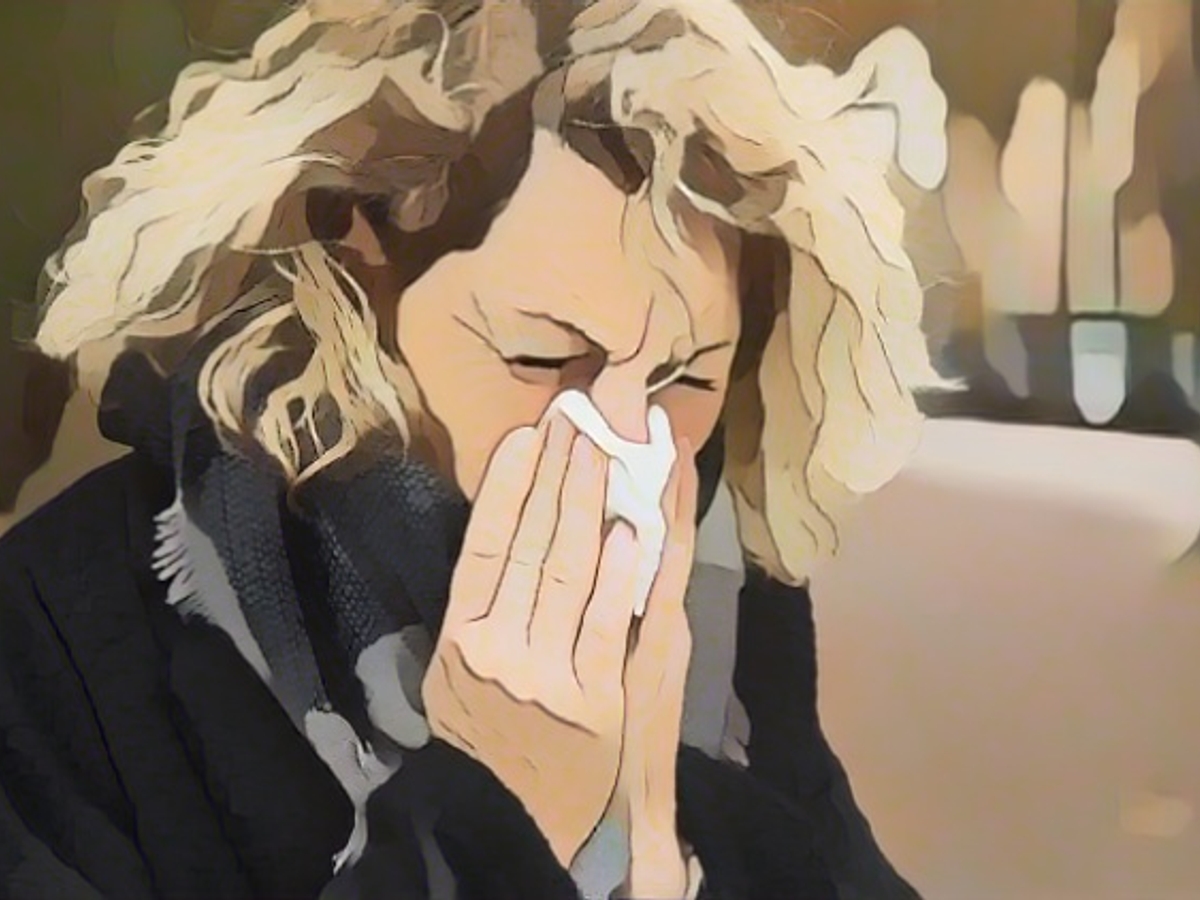Why so many people are currently ill
Whether on the suburban train, at the supermarket checkout or in the doctor's surgery, people are sniffling and coughing everywhere. At the same time, many offices are empty - that's how high the sickness rate is at the moment. And if you're not down with a cold yourself, someone close to you certainly is.
Figures from the latest ARE weekly report from the Robert Koch Institute (RKI) show that this is not just a subjective feeling. According to the report, more than seven million people had typical cold symptoms such as a cough, runny nose, fever and sore throat in the last week of October. This corresponds to 8500 respiratory illnesses per 100,000 inhabitants. This is the highest figure for this period since the data series began in 2011.
According to the RKI, samples sent to laboratories by doctors mainly contained coronaviruses and rhinoviruses - the latter are classic cold pathogens. For the first time this year, coronaviruses have replaced rhinoviruses as the main cause of respiratory diseases. Almost a quarter of infections are caused by Sars-CoV-2. According to the data, influenza, on the other hand, is not yet spreading in Germany.
The "rebound effect" is to blame
According to Dr. Christoph Specht, the unusually high numbers are partly due to the so-called "rebound effect": Contact restrictions and hygiene measures have prevented many infections during the pandemic, the GP and medical journalist tells ntv. As a result, the immune system has been running on low heat. "We normally come into contact with a wide variety of viruses every year," says the expert. "We get infected and our immune system fights them for us - and then we are 'boosted' again, i.e. immune." This effect did not occur during the coronavirus years.
However, this is not necessarily the only reason for the strong wave of infections, says Specht. In addition to the current economic situation, which statistically leads to more sick days, it could also be due to a heightened awareness of illness. "Today, after the coronavirus pandemic, we are much more sensitive and attentive and listen to our bodies earlier and sooner," explains the doctor. What he means by this is that if you used to go to work with a runny nose, you might be more likely to call in sick today.
Don't panic, but be careful
It is difficult to predict how the wave of infections will develop in the coming weeks and months. According to the RKI, this depends on whether and when other pathogens such as the respiratory virus RSV or influenza viruses are added - and whether the viruses circulating so far will then remain or be replaced.
Panic about a dramatic wave of illness should not arise despite the current high numbers, Specht reassures. "I don't see any cause for concern here - and neither does the RKI." If you take a closer look at the RKI figures, you will see that there was a significantly higher incidence towards the end of last year, explains the doctor. It could well be that this wave, which started later last year, simply started earlier this time.
Nevertheless, experts advise people to protect themselves against the virus and, above all, to avoid severe courses of the disease. "Regardless of which virus we are talking about, mouth and nose protection helps against all nasopharyngeal viruses at the same time," says Ulf Dittmer, Director of the Institute of Virology at the University Medical Center Essen, to the Frankfurter Rundschau. People over the age of 60 should also be vaccinated against coronavirus and influenza.
Despite the surge in respiratory illnesses, including colds and Coronaviruses, as reported in the latest weekly report from the Robert Koch Institute, it's important to note that education and preventive measures should continue. For instance, wearing masks and getting vaccinated against coronaviruses and influenza can help protect individuals, especially those over 60 years old, from severe illnesses.
Source: www.ntv.de







